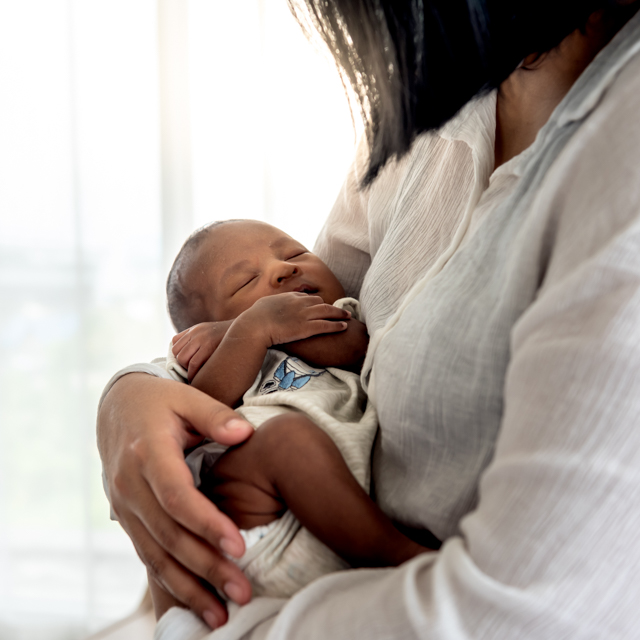Your doctor may recommend a cesarean birth, or ‘C-section,’ to protect the health of you and your baby.
While a vaginal delivery is best for Mom and baby, in most cases, the truth is there are situations when the safest delivery method is a cesarean birth, commonly known as a “C-section.”
“Although we generally recommend vaginal delivery for patients, there are several reasons that a cesarean delivery would be the preferred method of delivery.”
“Although we generally recommend vaginal delivery for patients, there are several reasons that a cesarean delivery would be the preferred method of delivery,” said Dr. Soha S. Patel, a Vanderbilt Health maternal-fetal medicine physician specializing in high-risk pregnancy care. “But there are still plenty of reasons your physician may recommend a C-section to protect the health of you and your baby. It is an important option and is sometimes the best – or only – way to ensure a healthy delivery for both the patient and her baby.”
Although vaginal birth has its benefits, it may not be the right option for everyone, Patel said. One in three deliveries in the United States are C-section births, according to the American College of Obstetricians and Gynecologists, and it is the most common surgery in the United States.
“Simply put: a C-section can be life-saving under specific clinical circumstances.”
The decision to have a C-section versus a vaginal birth is a personal one for the patient that should be respected, Patel said.
“Simply put: a C-section can be life-saving under specific clinical circumstances,” Patel said.
Why might I need a C-section?
The most common reasons for a cesarean birth in the United States are:
- Inability to progress during labor.
- If the baby is showing signs of distress before or during labor.
- If your baby is “breech” or in another position that can prevent a safe vaginal birth.
- You have had previous cesarean deliveries, or any contraindications to vaginal birth.
Other indications for a cesarean birth include: abnormal location of the placenta or umbilical cord, an infection that prevents a safe vaginal delivery, or fetal abnormalities where vaginal birth may be contraindicated.
Sometimes, you may need a C-section if you have a very large baby, especially one that is too large for your pelvis, or you may have a medical condition that makes it necessary for you to give birth right away or otherwise makes vaginal birth risky. Likewise, if you are delivering multiple babies, issues with timing, position, etc., will become more difficult and increase the likelihood you will need a C-section.
Can you choose to have a C-section?
You can also choose to have a C-section even if a vaginal birth might be possible for you. Reasons for this might include anxiety or fears around delivery or complications with a previous delivery.
“You will want to discuss your options with your prenatal provider,” Patel said. “A cesarean delivery still involves surgery, recovery and implications for future pregnancies. You need to be sure you have considered the risks and benefits of each option and make the best decision for your particular circumstances.”
Prepare yourself for the possibility of a C-section
Sometimes you and your provider will have decided on a cesarean delivery before your due date, particularly if you have known health issues or a high-risk pregnancy. However, sometimes it becomes clear you need an emergency C-section when you are already in labor.
“A little education and discussion with your prenatal provider go a long way to making you feel like you are making informed decisions about your health and what could become necessary during delivery.”
“It can decrease some of the stress that can occur during these emergent situations if you have learned a little about cesarean delivery beforehand during prenatal care,” Patel said. “A little education and discussion with your prenatal provider go a long way to making you feel like you are making informed decisions about your health and what could become necessary during delivery.”
Then: Try to relax and be present for what comes next
Regardless of how your baby is delivered, it’s what comes after that matters most. “You and your health care team have a shared goal: sending you and your baby home, both happy and healthy,” Patel said.

Expert care for you and your baby
Each pregnancy and delivery is unique and yours should be too. Learn more about how Vanderbilt Health’s obstetrics and maternal fetal medicine teams bring together nationally ranked expertise and personalized care from your first prenatal visit to delivery and beyond.
To learn more, call 615-343-5700 or schedule an appointment online.




